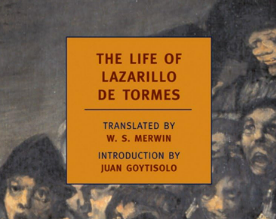788 Results in the "Literary Fiction" category
Biography & Memoir (434)
Books Like (8)
Business & Finance (26)
Children’s Fiction (203)
Dystopian (16)
Education & Learning (9)
Fantasy (1214)
fashion (1)
Fiction (3847)
Health & Wellness (21)
Historical Fiction (504)
Horror (159)
Non-Fiction (1302)
Novel (229)
Others (106)
Philosophy (128)
Poetry (208)
Politics & History (131)
Posts (65)
Psychology (46)
Religion & Spirituality (1)
Romance Novel (535)
Science & Technology (82)
Science Fiction (220)
Self-Help & Personal Development (99)
Thriller / Mystery (858)
Travel & Adventure (2)
True Crime (55)
view (96)
Young Adult (284)
-
Chapter
Un Morso doo Pang [1919]
![Un Morso doo Pang [1919] Cover](https://static.beescdn.com/summaryer.com/2024/11/61hduZkjIcL._AC_UF10001000_QL80_-400x600.jpg) Un Morso doo Pang begins in a quiet, firelit room, where Tessie repeats a foreign phrase with hesitant precision. Her voice wavers, not from a lack of courage, but from the weight of the moment—it’s not just a lesson in language, but a declaration of intent. Angie, patient and grounded, corrects her gently, encouraging not just her pronunciation but her self-belief. Tessie’s lips form the words again, this time with more clarity, her eyes lit by something deeper than understanding. It’s hope.…
Un Morso doo Pang begins in a quiet, firelit room, where Tessie repeats a foreign phrase with hesitant precision. Her voice wavers, not from a lack of courage, but from the weight of the moment—it’s not just a lesson in language, but a declaration of intent. Angie, patient and grounded, corrects her gently, encouraging not just her pronunciation but her self-belief. Tessie’s lips form the words again, this time with more clarity, her eyes lit by something deeper than understanding. It’s hope.…-
28.7 K • Ongoing
-
-
Chapter
Long Distance [1919]
![Long Distance [1919] Cover](https://static.beescdn.com/summaryer.com/2024/11/61hduZkjIcL._AC_UF10001000_QL80_-400x600.jpg) Long Distance opens with a striking contrast: Chet Ball, once a rugged lineman from Chicago, now rests in a quiet English hospital room, painting a wooden chicken with hands more familiar with climbing poles than holding a brush. His broad shoulders and sun-worn face seem almost out of place amid the dainty surroundings of Reconstruction Hospital No. 9. Though the toy he paints is small and colorful, it stands as a powerful symbol of how far removed he is from the grit and peril of his past life. The room…
Long Distance opens with a striking contrast: Chet Ball, once a rugged lineman from Chicago, now rests in a quiet English hospital room, painting a wooden chicken with hands more familiar with climbing poles than holding a brush. His broad shoulders and sun-worn face seem almost out of place amid the dainty surroundings of Reconstruction Hospital No. 9. Though the toy he paints is small and colorful, it stands as a powerful symbol of how far removed he is from the grit and peril of his past life. The room…-
28.7 K • Ongoing
-
-
Chapter
The Maternal Feminine [1919]
![The Maternal Feminine [1919] Cover](https://static.beescdn.com/summaryer.com/2024/11/61hduZkjIcL._AC_UF10001000_QL80_-400x600.jpg) The Maternal Feminine begins in a room where the atmosphere is tense but quiet, filled with a stillness that holds space for both anticipation and mourning. Sophy, seated calmly with her hands gently resting in her lap, looked every bit the composed elder, yet behind her quiet exterior was an awareness of the weight about to descend. When Marian King entered, she brought not just information but presence—firm and capable, with a kind of warmth that disarmed without softening the truth. Her youth…
The Maternal Feminine begins in a room where the atmosphere is tense but quiet, filled with a stillness that holds space for both anticipation and mourning. Sophy, seated calmly with her hands gently resting in her lap, looked every bit the composed elder, yet behind her quiet exterior was an awareness of the weight about to descend. When Marian King entered, she brought not just information but presence—firm and capable, with a kind of warmth that disarmed without softening the truth. Her youth…-
28.7 K • Ongoing
-
-
Story
Dream Life and Real Life
 Dream Life and Real Life is a novel by Olive Schreiner, published in 1893. It explores the inner thoughts and experiences of a woman torn between the idealized world of dreams and the harsh realities of life. The book addresses themes of self-discovery, societal expectations, and the search for meaning, offering a critique of the limitations placed on women in Victorian society.
Dream Life and Real Life is a novel by Olive Schreiner, published in 1893. It explores the inner thoughts and experiences of a woman torn between the idealized world of dreams and the harsh realities of life. The book addresses themes of self-discovery, societal expectations, and the search for meaning, offering a critique of the limitations placed on women in Victorian society.-
4.5 K • Nov 8, '24
-
4.1 K • Nov 8, '24
-
4.4 K • Nov 8, '24
-
-
Chapter
Introduction
 Introduction to Lazarillo of Tormes reveals not a story of grand knights or epic battles, but one grounded in the grit of everyday survival. Unlike the noble heroes populating Spain’s popular literature of the sixteenth century, Lazarillo is poor, cunning, and painfully aware of the world’s hypocrisies. His journey begins not with a sword, but with an empty stomach and an endless capacity for adaptation. The novel stood out sharply in its time, eschewing fantasy for realism and replacing idealized…
Introduction to Lazarillo of Tormes reveals not a story of grand knights or epic battles, but one grounded in the grit of everyday survival. Unlike the noble heroes populating Spain’s popular literature of the sixteenth century, Lazarillo is poor, cunning, and painfully aware of the world’s hypocrisies. His journey begins not with a sword, but with an empty stomach and an endless capacity for adaptation. The novel stood out sharply in its time, eschewing fantasy for realism and replacing idealized…-
108.4 K • Ongoing
-
-
Chapter
Translator’s Note
 The introductory commentary and translator's note for the second part of The Life of Lazarillo de Tormes provide essential context and appreciation for Juan de Luna’s continuation of the original work. Despite Luna’s necessity to leave Spain influencing the sequel's tone, his storytelling prowess ensures a vibrant and engaging narrative. Unlike the "First Part," Luna’s sequel is renowned for its entertaining and highly descriptive scenes filled with wit and humor. In this continuation, memorable…
The introductory commentary and translator's note for the second part of The Life of Lazarillo de Tormes provide essential context and appreciation for Juan de Luna’s continuation of the original work. Despite Luna’s necessity to leave Spain influencing the sequel's tone, his storytelling prowess ensures a vibrant and engaging narrative. Unlike the "First Part," Luna’s sequel is renowned for its entertaining and highly descriptive scenes filled with wit and humor. In this continuation, memorable…-
108.4 K • Ongoing
-
-
 Chapter I opens with a candid address from Lazarillo, who introduces his life as a tale shaped by adversity and survival, not grandeur. He was born by the Tormes River, which earned him his surname, to parents who had little to offer besides their good intentions. His father, Tome Gonzales, worked at a mill but was later caught stealing from sacks of grain. The punishment was swift—he was sentenced and sent to serve in the army, where he eventually died. Left alone, his mother, Antona Perez, moved with…
Chapter I opens with a candid address from Lazarillo, who introduces his life as a tale shaped by adversity and survival, not grandeur. He was born by the Tormes River, which earned him his surname, to parents who had little to offer besides their good intentions. His father, Tome Gonzales, worked at a mill but was later caught stealing from sacks of grain. The punishment was swift—he was sentenced and sent to serve in the army, where he eventually died. Left alone, his mother, Antona Perez, moved with…-
108.4 K • Ongoing
-
-
Chapter
Chapter II: How Lazaro Took up with a Priest and the Things That Happened to Him with That Man
 Chapter II follows Lazarillo as he escapes one hardship only to enter another, leaving behind a blind master and soon finding himself under the care of a miserly priest in Maqueda. What begins with cautious hope quickly descends into another form of torment, cloaked in the false piety of his new employer. The priest, outwardly devout and respected by his community, treats Lazarillo not as a servant to be cared for, but as a burden to be rationed. Meals are rare and portions absurdly small—little more…
Chapter II follows Lazarillo as he escapes one hardship only to enter another, leaving behind a blind master and soon finding himself under the care of a miserly priest in Maqueda. What begins with cautious hope quickly descends into another form of torment, cloaked in the false piety of his new employer. The priest, outwardly devout and respected by his community, treats Lazarillo not as a servant to be cared for, but as a burden to be rationed. Meals are rare and portions absurdly small—little more…-
108.4 K • Ongoing
-
-
 Chapter III follows Lazarillo as he enters one of the most ironic and revealing stages of his early life, marked by both illusion and deprivation. Arriving in Toledo alone and hungry, he meets a gentlemanly figure dressed in fine clothes, whose appearance promises stability and decency. This man, a squire, welcomes him kindly and brings him into his home. At first, Lazarillo believes he has finally found a master who can provide shelter and regular meals. Yet as the days unfold, the truth begins to show:…
Chapter III follows Lazarillo as he enters one of the most ironic and revealing stages of his early life, marked by both illusion and deprivation. Arriving in Toledo alone and hungry, he meets a gentlemanly figure dressed in fine clothes, whose appearance promises stability and decency. This man, a squire, welcomes him kindly and brings him into his home. At first, Lazarillo believes he has finally found a master who can provide shelter and regular meals. Yet as the days unfold, the truth begins to show:…-
108.4 K • Ongoing
-
-
 Chapter V unfolds as Lazaro recounts his time under the employment of a pardoner—a man skilled in the art of spiritual persuasion and even more adept at deceit. This pardoner makes his living selling papal indulgences, documents claiming to absolve sins in exchange for a fee, and he crafts every word and gesture to sell them convincingly. He begins his efforts with small bribes to the local clergy, giving wine, fruit, or small coins to secure their support in urging parishioners to buy. The pardoner…
Chapter V unfolds as Lazaro recounts his time under the employment of a pardoner—a man skilled in the art of spiritual persuasion and even more adept at deceit. This pardoner makes his living selling papal indulgences, documents claiming to absolve sins in exchange for a fee, and he crafts every word and gesture to sell them convincingly. He begins his efforts with small bribes to the local clergy, giving wine, fruit, or small coins to secure their support in urging parishioners to buy. The pardoner…-
108.4 K • Ongoing
-
- Previous 1 … 15 16 17 … 28 Next
